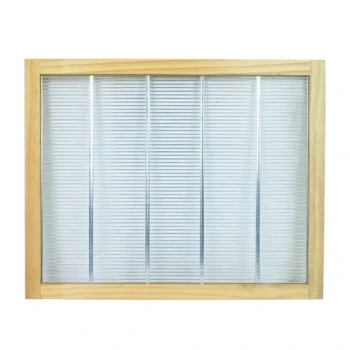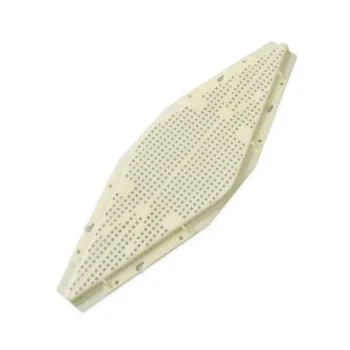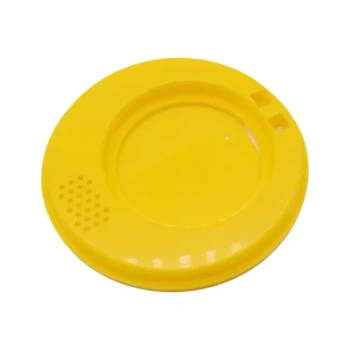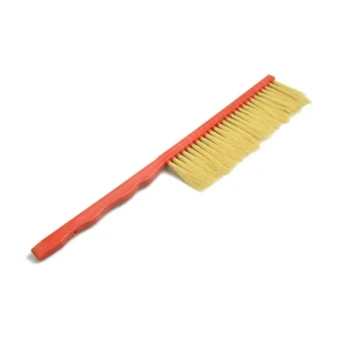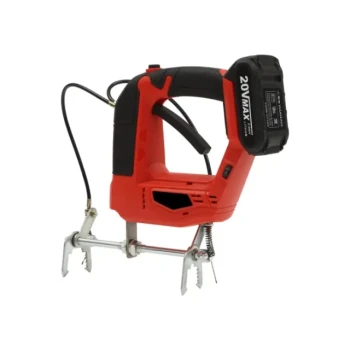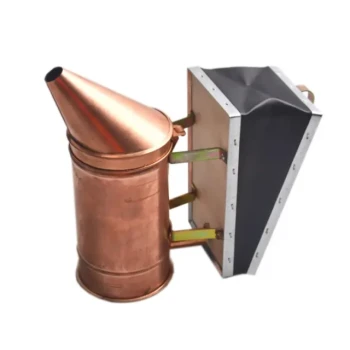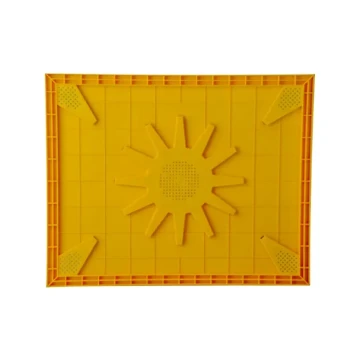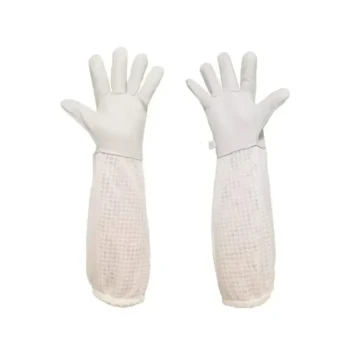At their core, the advantages of metal queen excluders are durability, structural integrity, and ease of cleaning. These devices are engineered to be a long-term, reliable tool in a beekeeper's arsenal, offering a rigid and precisely spaced barrier that withstands the rigors of apiary work for decades.
The decision to use a metal queen excluder is an investment in operational efficiency and longevity. While other options exist, metal provides unparalleled robustness and can be cleaned and sterilized to a degree that other materials cannot match.
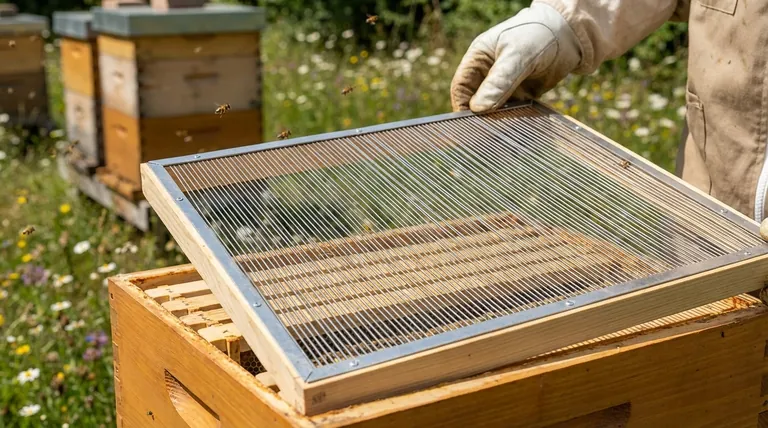
The Purpose of a Queen Excluder
Before examining the material, it's crucial to understand the tool's function. A queen excluder is a screen with openings large enough for worker bees to pass through but too small for the larger queen and drones.
Confining the Queen for Efficient Management
By placing an excluder between the brood boxes and the honey supers, you control where the queen can lay eggs. This ensures she remains in a known, predictable area of the hive.
This confinement makes tasks like finding the queen for re-queening or disease inspections significantly faster.
Ensuring Brood-Free Honey Supers
The primary goal is to keep brood (bee eggs, larvae, and pupae) out of the honey storage frames.
This allows a beekeeper to remove entire boxes of honey with confidence, knowing they will not be harvesting frames containing developing bees. This drastically increases the efficiency of honey extraction, especially in commercial operations.
Producing Cleaner Honey and Wax
Frames without brood contain significantly less pollen and other hive debris. This results in cleaner honey and higher-quality wax that can be recovered from the cappings.
Key Advantages of Metal Construction
The material an excluder is made from directly impacts its performance and lifespan. Metal offers distinct, tangible benefits.
Exceptional Durability and Longevity
Metal excluders are incredibly robust and long-lasting. With proper care, a single metal excluder can serve an apiary for many years, often decades, making it a one-time purchase.
Superior Structural Integrity
Unlike more flexible materials, metal excluders sit perfectly flat across the top of the brood box. They do not sag or warp over time, which is critical for maintaining correct bee space and preventing the bees from building unwanted burr comb.
Effective and Thorough Cleaning
Hygiene is paramount in beekeeping. Metal excluders can be easily scraped clean of wax and propolis.
Crucially, they can also be sterilized with a blowtorch or other heat treatments, a method that is impossible with plastic and highly effective at killing disease spores.
Enhanced Bee Safety
Well-made metal excluders feature smooth, uniform wire spacing. This design minimizes the risk of tearing a bee's delicate wings as it passes through, a common concern with lower-quality or poorly manufactured alternatives.
Resilience to Sterilization
For larger operations or those dealing with disease, equipment is sometimes sterilized with gamma irradiation. Metal excluders are completely resistant to damage from this process.
Understanding the Trade-offs: Metal vs. Plastic
No single piece of equipment is perfect for every situation. Choosing between metal and plastic requires weighing their respective strengths.
The Case for Metal: A Long-Term Investment
The primary drawback of metal excluders is their higher initial cost. However, their extreme durability often makes them more economical over the long term, as they do not need frequent replacement.
The Case for Plastic: Affordability and Convenience
Plastic excluders are significantly less expensive and much lighter than their metal counterparts. They do not rust and do not conduct heat or cold into the hive as readily as metal.
Additionally, some plastic designs have fewer crevices, which may offer fewer places for pests like small hive beetles to hide.
Making the Right Choice for Your Apiary
Your decision should be based on your specific goals, budget, and beekeeping philosophy.
- If your primary focus is long-term durability and rigorous hygiene: The robustness and superior cleanability of metal excluders make them the clear choice.
- If your primary focus is minimizing initial cost or hive weight: Plastic excluders provide a functional and highly affordable alternative.
- If you are a commercial operator prioritizing efficiency: The structural integrity and longevity of metal excluders generally provide the best return on investment.
Ultimately, choosing the right material is about aligning the equipment's properties with your specific operational needs.
Summary Table:
| Advantage | Description |
|---|---|
| Durability & Longevity | Built to last for decades, a one-time investment. |
| Structural Integrity | Prevents sagging and warping to maintain correct bee space. |
| Easy Cleaning & Sterilization | Can be scraped clean and sterilized with heat or irradiation. |
| Enhanced Bee Safety | Smooth, uniform wire spacing minimizes wing damage. |
Upgrade your apiary's efficiency with professional-grade equipment from HONESTBEE.
As a wholesale supplier to commercial apiaries and distributors, we understand the demands of large-scale beekeeping. Our metal queen excluders are engineered for maximum durability and hygiene, helping you protect your investment and maintain healthy, productive hives season after season.
Ready to equip your operation with tools built to last? Contact our team today to discuss your needs and explore our full range of beekeeping supplies.
Visual Guide
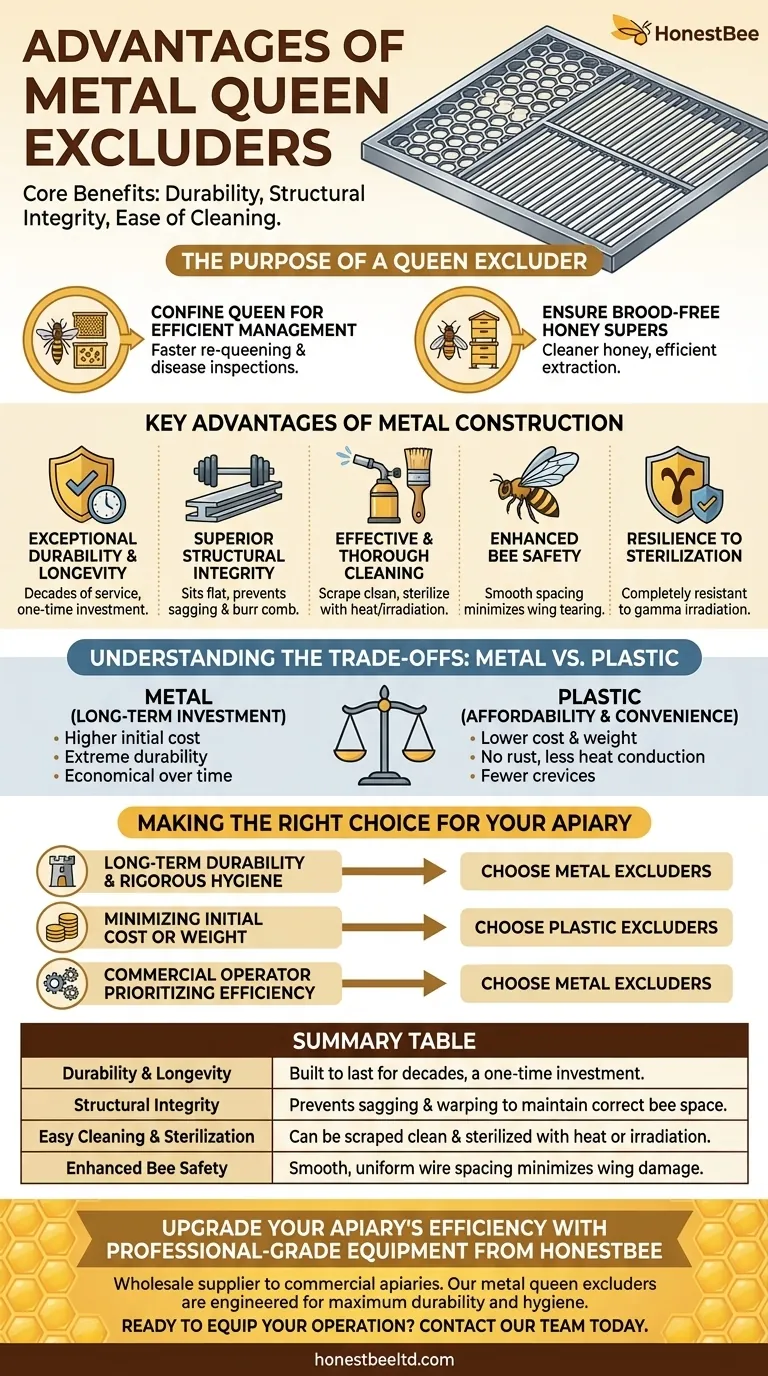
Related Products
- Wooden Queen Bee Excluder for Beekeeping
- Premium Wood Framed Metal Wire Queen Bee Excluder
- Metal Queen Bee Excluder for Beekeeping
- Professional Plastic Queen Excluder for Modern Beekeeping
- High Performance Plastic Queen Excluder for Beekeeping and Apiary Management
People Also Ask
- What is the core function of a Queen Excluder in royal jelly production? Boost Yields with Behavioral Management
- What function does a queen excluder serve? Boost Honey Purity and Breeding Accuracy
- How does a queen excluder facilitate the process of finding the queen? Master Hive Isolation Techniques
- How does a queen excluder facilitate the production of high-quality commercial honey? Ensure Purity & Efficiency
- Which equipment is used to prevent robbing behavior? Protect Your Apiary During Resource-Poor Seasons

